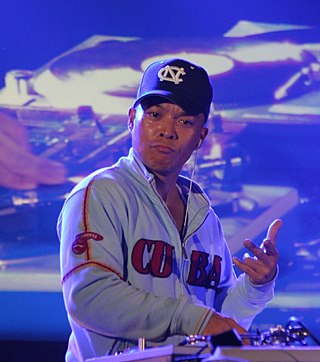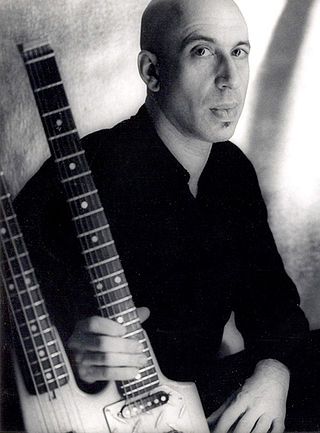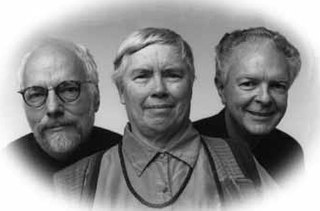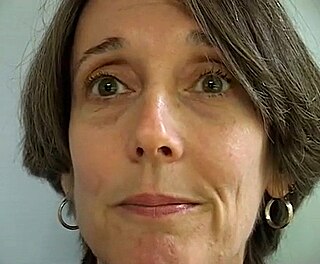Related Research Articles

A disc jockey, more commonly abbreviated as DJ, is a person who plays recorded music for an audience. Types of DJs include radio DJs, club DJs, mobile DJs, and turntablists. Originally, the "disc" in "disc jockey" referred to shellac and later vinyl records, but nowadays DJ is used as an all-encompassing term to also describe persons who mix music from other recording media such as cassettes, CDs or digital audio files on a CDJ, controller, or even a laptop. DJs may adopt the title "DJ" in front of their real names, adopted pseudonyms, or stage names.
Free improvisation or free music is improvised music without any general rules, instead following the intuition of its performers. The term can refer to both a technique—employed by any musician in any genre—and as a recognizable genre of experimental music in its own right.

Turntablism is the art of manipulating sounds and creating new music, sound effects, mixes and other creative sounds and beats, typically by using two or more turntables and a cross fader-equipped DJ mixer. The mixer is plugged into a PA system or broadcasting equipment so that a wider audience can hear the turntablist's music. Turntablists typically manipulate records on a turntable by moving the record with their hand to cue the stylus to exact points on a record, and by touching or moving the platter or record to stop, slow down, speed up or, spin the record backwards, or moving the turntable platter back and forth, all while using a DJ mixer's cross-fader control and the mixer's gain and equalization controls to adjust the sound and level of each turntable. Turntablists typically use two or more turntables and headphones to cue up desired start points on different records.

Pauline Oliveros was an American composer, accordionist and a central figure in the development of post-war experimental and electronic music.

Christian Marclay is a visual artist and composer. He holds both American and Swiss nationality.

Elliott Sharp is an American contemporary classical composer, multi-instrumentalist, performer, author, and visual artist.

Zeena Parkins is an American composer and multi-instrumentalist active in experimental, free improvised, contemporary classical, and avant-jazz music; she is known for having "reinvented the harp". Parkins performs on standard harps, several custom electric harps, piano, and accordion. She is a 2019 Guggenheim Fellow and professor in the Music Department at Mills College.

The Deep Listening Band (DLB) was founded in 1988 by Pauline Oliveros, Stuart Dempster and Panaiotis. David Gamper replaced Panaiotis in 1990.
Asphodel Ltd was a San Francisco-based independent record label founded by musician Mitzi Johnson and Naut Humon in 1992. The label is named after the mythological flower that grows along the banks of the River Styx in Hades. The label had shut down as of January 2011.

Janene Higgins is an American media artist whose work focuses on print, motion design, and video art. She was a former art director for Vanity Fair magazine and RCA Music Group; her video Over Water: Transitive States was presented at the Venice Biennale of Architecture 2021, and her projection design for the opera Die Grösste Fuge premiered at the Beethoven festival "BTHVN 2020" in Bonn, Germany.

The Technology of Tears (And Other Music for Dance and Theatre) is a double album by English guitarist, composer and improvisor Fred Frith. It is the first of a series of Music for Dance albums Frith made, and is sometimes subtitled Music for Dance volume 1. It was recorded between June 1986 and April 1987, and released on a double LP and a single CD by RecRec Music (Switzerland), and on a double LP only by SST Records (United States) in 1988. It was re-issued on CD in 2008 by Fred Records (United Kingdom). All the CD releases omit the Propaganda suite (side 4 of the double LP).
Shelley Hirsch is an American vocalist, performance artist, composer, improviser, and writer. She won a DAAD Residency Grant in Berlin 1992, a Prix Futura award in 1993, and multiple awards from Creative Capital, the Foundation for Contemporary Arts, the New York State Council for the Arts, four from NYFA and six from Harvestworks Digital Media Arts Center. She was a recipient of the Guggenheim Fellowship in Music Composition in 2017.

Brenda Hutchinson is an American composer and sound artist who has developed a body of work based on a perspective about interacting with the public and non-artists through personal, reciprocal engagement with listening and sounding. Hutchinson encourages her participants to experiment with sound, share stories, and make music. She often bases her electroacoustic compositions on recordings of these individual collaborative experiences, creating "sonic portraits" or "aural pictures" of people and situations.
Catherine Jauniaux is a Belgian avant-garde singer. She has been described as a "one-woman-orchestra", a "human sampler", and "one of the best kept secrets in the world of improvised music". Her solo album, Fluvial (1983) is regarded as one of her most accomplished works. She was married to the late American experimental cellist and composer Tom Cora.

p53 is a 1996 live album by experimental music group p53. It was their debut album and was recorded at the 25th Frankfurt Jazz Festival in Germany on 16 September 1994. It was released in 1996 in the United Kingdom by Recommended Records.
Marina Rosenfeld is an American composer, sound artist and visual artist based in New York City. Her work has been produced and presented by the Park Avenue Armory, Museum of Modern Art, Portikus (Frankfurt), Donaueschinger Musiktage, and such international surveys as documenta 14 and the Montreal, Liverpool, PERFORMA, and Whitney biennials, among many others. She has performed widely as an improvising turntablist, and served as co-chair of Music/Sound in the MFA program at the Milton Avery School of the Arts, Bard College, from 2007 to 2020. She has also taught at Harvard, Yale, Brooklyn College, and Dartmouth.
Electra is a London-based non-profit arts organisation that commissions new work by artists working across sound art, moving image, performance and visual art. The organisation particularly works with feminist concerns and overlooked histories. One of its earliest projects, Her Noise, has an archive, the Her Noise Archive, that is housed by University of the Arts, London Archives and Special Collections at London College of Communication, and has an online resource hernoise.org.

Mia Zabelka is an Austrian contemporary violinist, improviser, and composer of Czech, Jewish and French familiar background. Comprehensively educated in classical music from early age on she opened up the traditional understanding of the violin as solo and ensemble instrument towards improvisation, experimental music, and sound art.
Shiva Feshareki is a British-Iranian experimental composer, turntable artist and radio presenter. As a turntablist, she plays her compositions solo or alongside classical orchestras. She was born in London in 1987. She obtained a Doctorate of Music from the Royal College of Music. In 2017 she was honoured with the Ivor Novello Award for Innovation.

Lisa E. Harris, also known as Li, is a multimedia artist, opera singer, and composer. She is renowned for her interdisciplinary work using voice, text, installation, movement, and new media.
References
- ↑ Votaw, Emily. "To Manifest for a Lifetime: a Talk With Artist Maria Chavez". woub.org. Retrieved 2023-11-16.
- 1 2 "Vatican Shadow | Maria Chavez — Arnolfini". Arnolfini.org.uk. 2013-09-06. Retrieved 2014-03-28.
- 1 2 3 4 Schick, Ignaz. "CEC — eContact! 14.3 — 6 Questions to Turntablist Maria Chavez by Ignaz Schick". Cec.sonus.ca. Retrieved 2014-03-28.
- 1 2 "Maria Chavez publishing experimental turntablism manual". The Wire. Retrieved 2014-03-28.
- ↑ "Maria Chavez: Improvised Spaces | Clocktower Gallery & Radio". ARTonAIR.org. Retrieved 2014-03-28.
- ↑ Chavez, Maria (2012). Of Technique: Chance Procedures on Turntable (100 ed.). Brooklyn, USA: M. Chavez. p. 117.
- ↑ "Maria Chávez: "Plays" (Stefan Goldmann's Ghost Hemiola)". Textura. Retrieved 2021-02-24.
- 1 2 "Upcoming Roulette Events | Maria Chavez w/ Thomas DexterRoulette". Roulette.org. 2008-03-15. Retrieved 2014-03-28.
- ↑ Skolnick, Sara. "A Tribute to Pauline Oliveros, the Queer Tejana Who Revolutionized Experimental Music". Remezcla. Retrieved 20 January 2024.
- ↑ Skolnick, Sara. "A Tribute to Pauline Oliveros, the Queer Tejana Who Revolutionized Experimental Music". Remezcla. Retrieved 20 January 2024.
- ↑ Skolnick, Sara. "A Tribute to Pauline Oliveros, the Queer Tejana Who Revolutionized Experimental Music". Remezcla. Retrieved 20 January 2024.